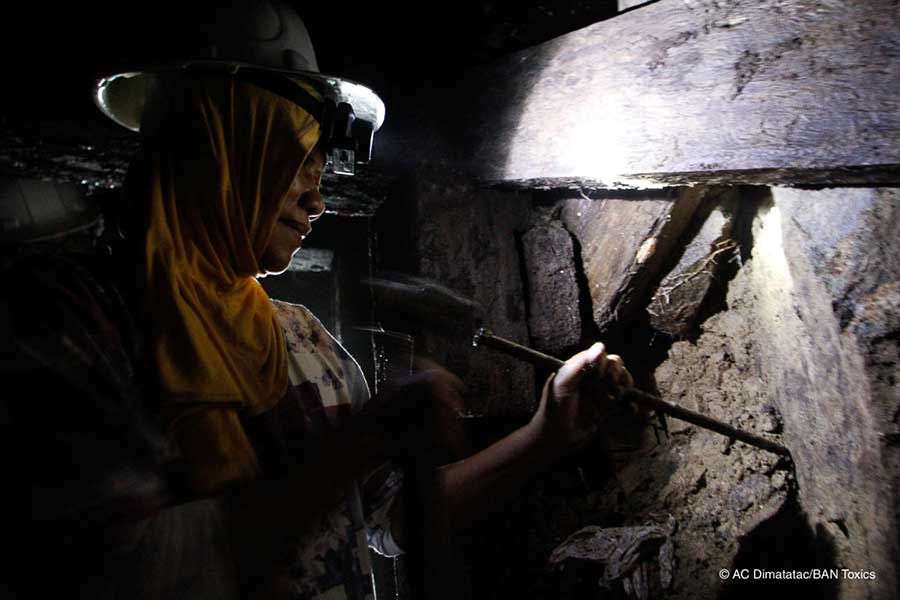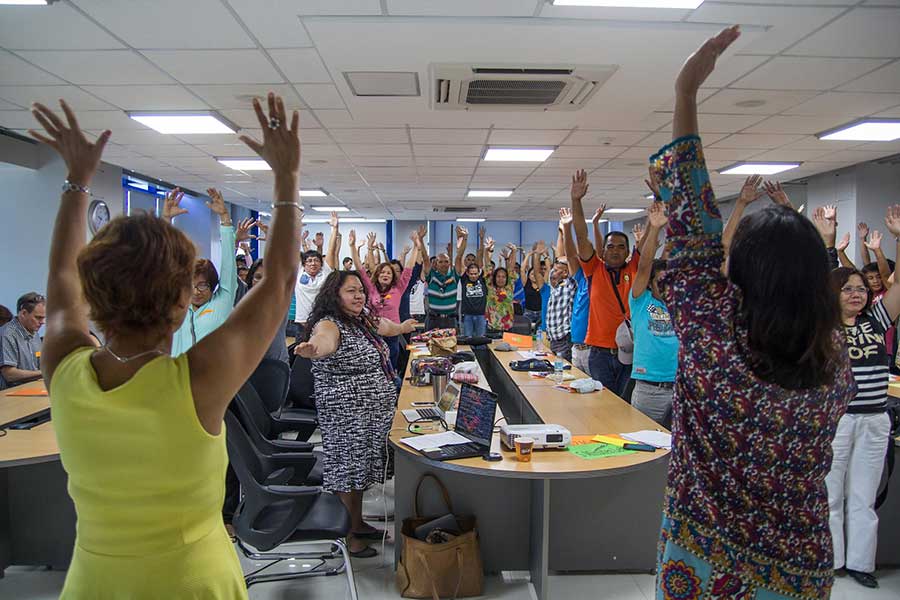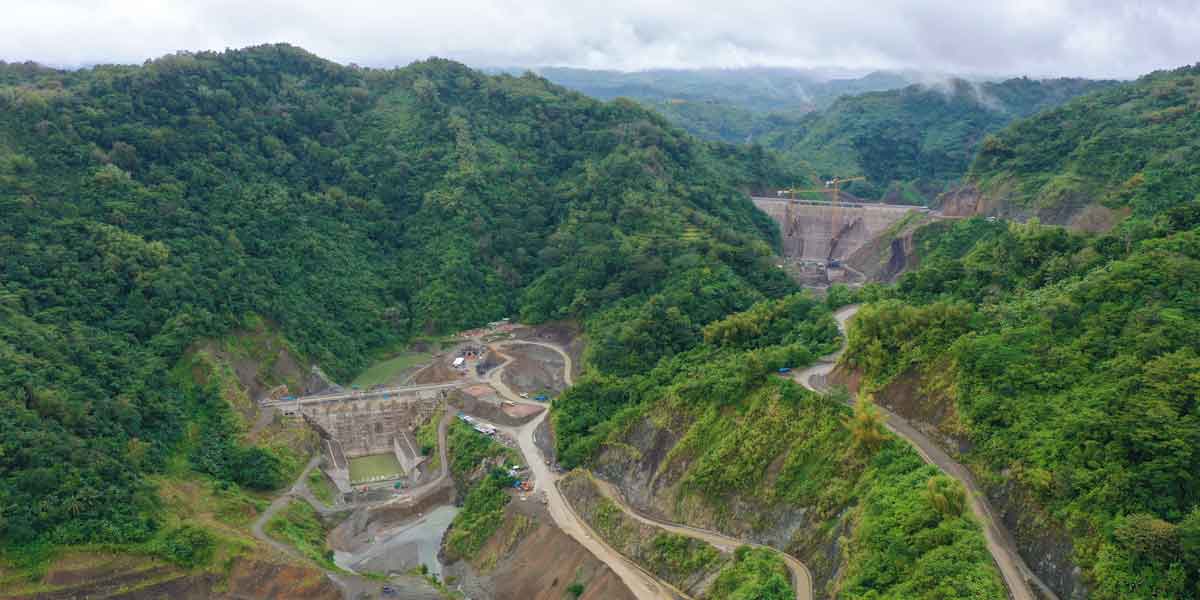
Toxics and wastes watchdog group BAN Toxics spotlights their partner organization, the National Coalition of Small-Scale Miners in the Philippines, in time for the coalition’s incoming third national assembly on July 28 to 30, 2022.
The National Coalition of Small-Scale Miners in the Philippines is an alliance of small-scale mining associations nationwide that promotes responsible mining through the formalization of the artisanal and small-scale mining sector in the country.
The national coalition was formed to respond to various issues plaguing the artisanal and small-scale mining (ASM) sector in the Philippines, such as poverty, human rights, legalization and formalization, amendment of mining laws, occupational health and safety, and environmental impact.
Established in April 2016, the coalition was formed during the Fourth National Artisanal and Small-Scale Gold Mining Summit in Davao City. It was organized with the help of its secretariat organization, BAN Toxics, and several partner organizations, including United Nations Industrial Development Organization (UNIDO), the Global Environment Facility (GEF), the United States Department of State (USDOS), Dialogos, and the Swedish Society for Nature Conservation (SSNC).
The union also aims to uplift the lives of ASM community members through responsible mining.

The National Coalition of Small-Scale Miners in the Philippines and BAN Toxics work hand-in-hand to help transition miners to mercury-free technology to protect both human health and the environment, improve working conditions, assert occupational safety and health for miners, promote human rights, and eliminate child labor in the sector. BAN Toxics aimed to reduce and eliminate mercury use in ASGM mining processes and, at the same time, promote the empowerment of women and children, and facilitate community development programs.
The objective of the coalition is to achieve a progressive, healthy, and sustainable artisanal small-scale mining community through responsible mining, good governance, and unity. The group aims to be advocates and stewards of a toxic-free society and responsible mining that uplifts the lives of marginalized Filipinos.
The national coalition continues to coordinate with the Mines and Geosciences Bureau (MGB) and various Provincial Mining Regulatory Boards (PMRB) for the declaration of several Minahang Bayan and issuance of mining contracts to legalize small-scale mining operations.
The organization also promotes and assists miners and mining associations to sell their gold to Bangko Sentral ng Pilipinas (BSP) to improve the country’s gold reserves and help the economy.
ASGM in the Philippines
More than 40 provinces in the Philippines are home to an estimated 500,000 individuals and their families whose primary source of income is gold extraction from artisanal and small-scale gold mining (ASGM) sites.[1] Around 75% percent of these miners are engaged in subsistence mining where their daily income barely covers their basic needs.[2]
The ASGM sector has been identified as the main anthropogenic source of mercury pollution, accounting for 35% of the total emissions in the global atmosphere.[3]
According to the UNEP Global Mercury Assessment 2018, mercury emissions from artisanal and small-scale gold mining (ASGM) are estimated to exceed 2000 tonnes annually. It is the sector that demands and consumes the most mercury, with mostly all of it being released into the environment.[4]
Mercury emissions into the atmosphere have a variety of public health and environmental consequences, including marine life contamination, human contamination through fish consumption, land degradation and river siltation, as well as the associated deforestation, loss of organic soil, and loss of aquatic habitat.[5]
The Minamata Convention on Mercury is an international treaty designed to protect human health and the environment from man-made emissions of mercury and mercury compounds. The Convention provides a comprehensive policy to address mercury emissions to soil, water and the atmosphere, phase out mercury use in products and processes, and the regulation of the informality of the ASGM sector. It also addresses the storage and disposal of the chemical.
The Philippines ratified the Minamata Convention on Mercury on July 8, 2020.
“We call for the formalization of the artisanal and small-scale mining sector to improve the working and occupational safety and health conditions of all the miners. It is high time for the Philippines to prioritize the protection of small-scale mining communities,” says Gil Indino, chairperson of the National Coalition of Small-Scale Miners in the Philippines.
“The effect of artisanal and small-scale gold mining, the main anthropogenic source of mercury emissions and releases worldwide, remains unknown due to the sector’s informality and illegality. The legalization of the sector will not only help protect mine workers and mining community members but also the environment from the adverse effects of mercury,” says Arleen Honrade, Secretary of the national coalition and Monitoring and Evaluation of BAN Toxics.
The National Coalition of Small-Scale Miners in the Philippines will be convening for their third assembly on July 28 – 30, 2022, in Villa Silvina Hotel and Restaurant in Baguio City. Hosted by the Benguet Federation of Small-Scale Miners, the theme of the third assembly is “Pag-usad ng Responsableng Maliitang Pagmimina sa New Normal.”
[1] FAST FACTS: Mining in the Philippines. Rappler
[2] Trillion-Dollar Philippine Economic Goldmine Emerging From Murky Pit. Forbes
[3] The Minamata Convention on Mercury and Artisanal and Small Scale Gold Mining. USDOS
[4] World emissions of mercury from artisanal and small scale gold mining and the knowledge gaps about them. planetGOLD
[5] Artisanal and Small-Scale Gold Mining (ASGM). UNEP Global Mercury Partnership




















